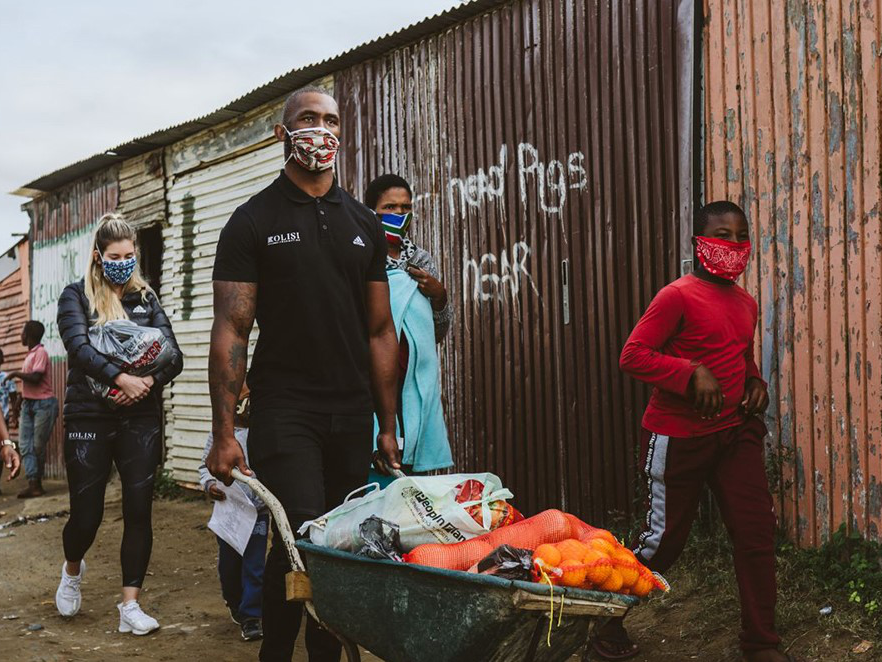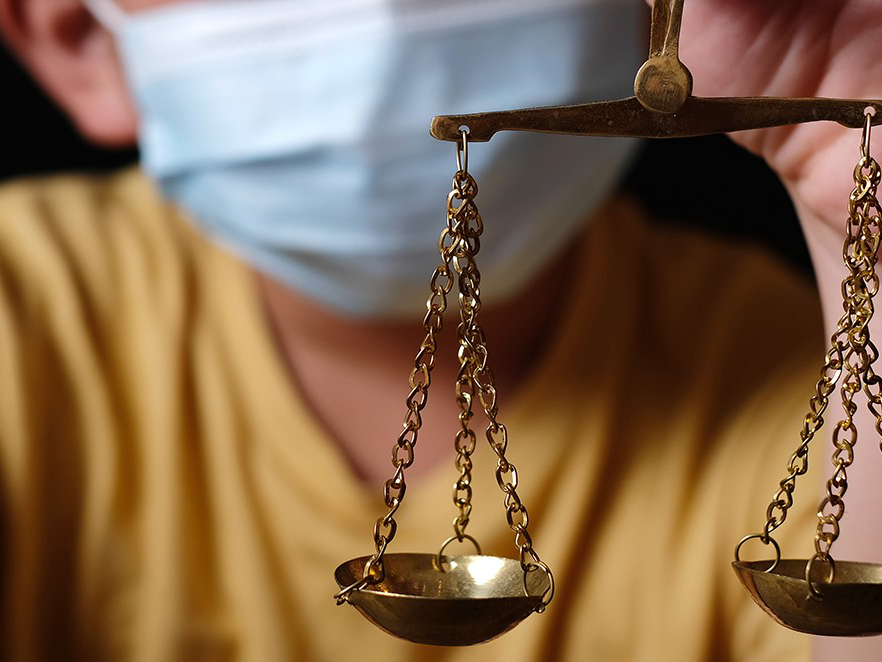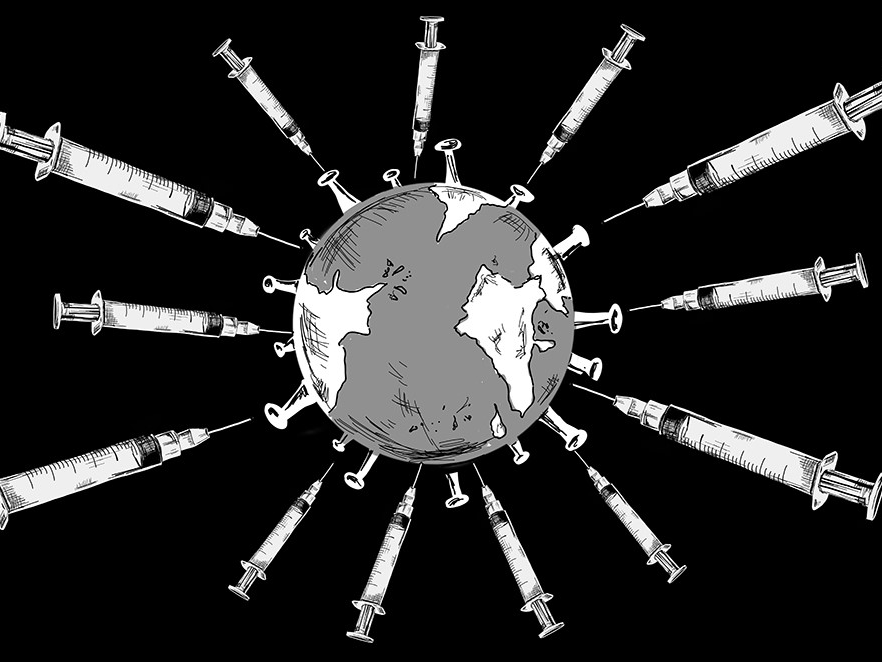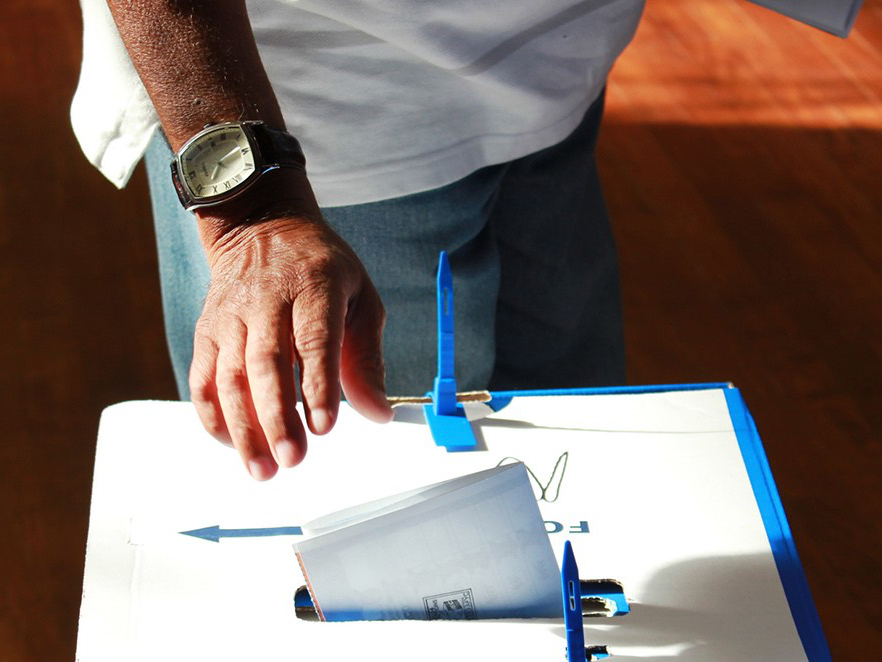Actis Acts is Actis’ foundation supporting charitable activities linked to Actis investee companies, local charities and humanitarian crises affecting regions where Actis operates.
It embodies our values by seeking to leave a positive and sustainable impact on the communities surrounding our investments. To date, we have committed c.US700,000 into 12 projects.
From immediate need to long-term solutions
The pandemic will leave many lasting marks on communities worldwide, but one legacy could be smarter charitable programmes and improved approaches to philanthropy.
COVID-19 has wrought economic disruption in ways that ripple out for years to come in many of the world’s most vulnerable communities. Yet this pandemic has the potential to shift attitudes and actions permanently in a way that hasn’t happened with previous new disease outbreaks, such as the spread of Ebola across the African continent.
The pandemic’s effects on the communities our firm touches have underscored the importance of investee company community spending programmes as well as of Actis Acts, our foundation that supports charities linked to portfolio companies, partner charities that operate on our markets and those nominated by our staff. At a time when management teams have needed to focus primarily on stabilising their businesses and keeping staff and their families safe, our support has helped portfolio companies meet the growing needs of stakeholders and the wider community.
Mobilising support for COVID-19 response
Over the past year, much of the community spending and Actis Acts funding has naturally focused on pandemic-related responses. With schools largely closed, for example, funding has been reallocated from buying physical equipment for students such as bags and desks and towards immediate needs that are focused on the specific issues faced in each of our markets and locations.
Through their community spending programmes, our energy infrastructure platforms, for example, provided sanitation kits for communities that included buying water in places where this was not available – there is little point in providing soap if people have no way of washing their hands, after all. One of our platforms, Azura, offered training and materials to help local people make soap using local products and then to package, market and sell it, an initiative that meets current demand while also providing long-term income sources for families. Other work supported by Actis has involved supplying fabric to local seamstresses to make face masks for distribution to portfolio company employees and surrounding villages, offering psychological support through virtual platforms for bereaved families and – vitally – running campaigns to counter dangerous misinformation around the disease.
Scaling up impact
Another initiative established by Actis portfolio company Food Lover’s Market, a South African supermarket, also offers an example of how charitable activity can be made smarter. The business has a long-standing partnership with Food Forward, a leading food bank in South Africa and it has also joined forces with the Kolisi Foundation, which was established by Springbok rugby captain Siya Kolisi and his wife Rachel in March 2020 to address food insecurity in the poorest South African communities.
By encouraging customers to buy food items to donate that are then matched by its suppliers, FLM is managing to scale up its impact, in conjunction with funding and support from Actis Acts, to feed more families. Since the start of the pandemic, Food Forward has increased its beneficiaries from 200,000 a day to 400,000 and it can now grow this further. Actis Acts and FLM are providing food and funding to the Kolisi Foundation to help it scale up and it has exceeded its initial target of feeding 1,000 families for a three-month period to provide 7,350 people each month.
The challenge ahead
Yet more funding is clearly needed to address many of the pandemic’s effects. The fact that COVID-19 has had some kind of impact on pretty much every person in the world has shone a spotlight on a whole range of inequalities, from income through to gender and race. This increased understanding of people’s very different life chances and experiences has the power to galvanise more people into action, in particular as the pandemic has hit charitable fundraising hard.
We’re seeing this already. Management teams and employees are now thinking more holistically about what the role of business is and should be. Companies now recognise more than ever that profits should be accompanied by value for wider stakeholders.
We are also starting to see changes in the way that investors, such as family offices, are considering philanthropy. There is a growing recognition that one-off giving, while helpful, is less effective than more structured, long-term programmes that tend more towards investing. This is gathering speed as younger family members, who tend to be far more aware and less accepting of inequalities than previous generations, start to take the reins. There is a growing movement towards investing in private equity-style funds in developing economies that can offer relatively low-risk returns in the order of around 5% to 6%.
This may not be a model for the more mainstream investments of, say, a pension fund, but if a pool of capital dedicated to philanthropy were set aside, this could mobilise billions of dollars to improve the lives of some of the most vulnerable populations in the world.
The pandemic has clearly necessitated an immediate response to alleviate hunger, improve sanitation and counter misinformation. Yet there are grounds for hope that it will also engender more thought around how to tackle inequality over the long term alongside patient and highly targeted capital.






